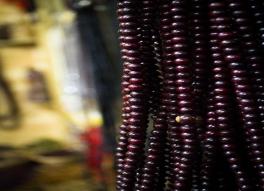![Somewhere south of Mahbes, Western Sahara, in the freed zone. Sahrawi women in the II International march against the Moroccan built wall that divides western Sahara. The longest wall built on Earth, this wall consists of a long wall with a berm, barbed wire, millions of landmines and electronic systems, survived by thousands of Moroccan soldiers.By Western Sahara (Sahrawi women against the wall of shame) [CC BY-SA 2.0 (http://creativecommons.org/licenses/by-sa/2.0)], via Wikimedia Commons](http://www.omrannews.com/wp-content/uploads/2015/08/512px-Sahrawi_women_against_the_wall_of_shame-300x225.jpg)
Somewhere south of Mahbes, Western Sahara, in the freed zone. Sahrawi women march against the Moroccan built wall that divides western Sahara. The wall consists of a long wall with a berm, barbed wire, millions of landmines and electronic systems, survived by thousands of Moroccan soldiers.Photo by Western Sahara (Sahrawi women against the wall of shame) via Wikimedia Commons
Tunisia, the country where a group of terrorists murdered foreign tourists along a popular beach is building a fence with watchtowers on its border with Libya. It is believed the killers were trained there.
After a suicide bomb exploded in a town in Turkey, the Turkish government announced its plans to strengthen the border with Syria, putting up a security fence.
Saudi Arabia is planning a wall along its entire border with its southern neighbor, Yemen.
In Morocco the world’s oldest functioning security barrier, built in the 1980s, protects the country from areas controlled by Polisario. Another barrier along the border with Algeria has been under construction since 2014.
“The Middle East and North Africa is now the most walled region in the world,” said Said Saddiki, a professor of International Relations and International Law at Al-Ain University of Science and Technology in Abu Dhabi. They range from “fences inside cities to anti-migrant walls and separation barriers to counter-insurgency” barricades, he said.


